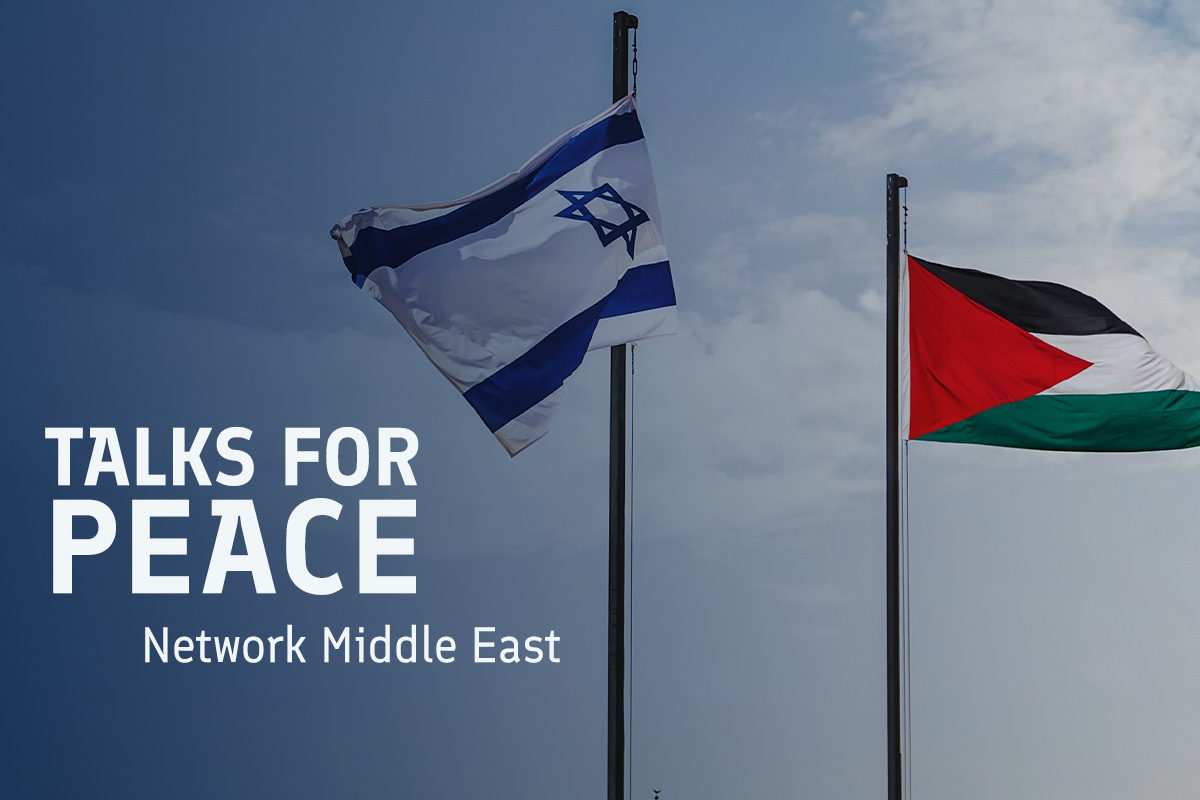Network Middle East: A Conversation for Peace
The Middle East Network consists of a small group of political experts, activists, and representatives from think tanks and NGOs from Israel, the Palestinian Territories, as well as regional actors from Egypt and Saudi Arabia. In this short video, several members share what motivates them to work toward changing the dynamics of the conflict and what opportunities they see in the crisis.
Since October 2024, the members of the network have been discussing peaceful political pathways toward a two-state solution in various meetings held in Berlin and online. At the heart of these discussions is also the question of how classical models of conflict resolution must be rethought and adapted in light of current developments.
At the same time, the future role of regional actors is coming into focus – as well as the possibility of new solutions embedded in the creation of regional infrastructure. To this end, the members of the network combine in-depth political analysis with concrete confidence-building measures – guided by a simple yet radical motto: “I begin the change. What you do is up to you.” (Samer Sinijlawi, network member)
Sinijlawi, who was imprisoned by Israel during the First Intifada, has become a pioneer for peace. He has written about the formation of his political views in The Atlantic.
Other members of the network who agreed to be interviewed include:
Yossi Beilin, co-initiator of the Oslo Accords: “The prerequisite for resolving the conflict is that there are leaders on both sides who are not only willing to make peace but also to risk their lives.”
Anwar El-Sadat, nephew of the Egyptian president of the same name who was assassinated in 1978 for making peace with Israel: “He was someone who believed in peace.”
Eli Bar-On, former Israeli military judge, who stresses the need for a new regional narrative that “grants legitimacy to both peoples on this land.”
Zippora Diskind, an Israeli mother of four from the ultra-Orthodox community, who advocates for listening: “You don’t have to agree with everything they say to understand that, where they are, they are truly suffering.”
Abdulaziz Al-Khames, a Saudi journalist, who explains: “It is important and new for us in the region that we – especially Israelis and Arabs – talk about our problems openly, without ulterior motives or restrictions.”
Hat Ihnen unser Beitrag gefallen? Dann spenden Sie doch einfach und bequem über unser Spendentool. Sie unterstützen damit die publizistische Arbeit von LibMod.
Wir sind als gemeinnützig anerkannt, entsprechend sind Spenden steuerlich absetzbar. Für eine Spendenbescheinigung (nötig bei einem Betrag über 200 EUR), senden Sie Ihre Adressdaten bitte an finanzen@libmod.de
Verwandte Themen
Newsletter bestellen
Mit dem LibMod-Newsletter erhalten Sie regelmäßig Neuigkeiten zu unseren Themen in Ihr Postfach.




